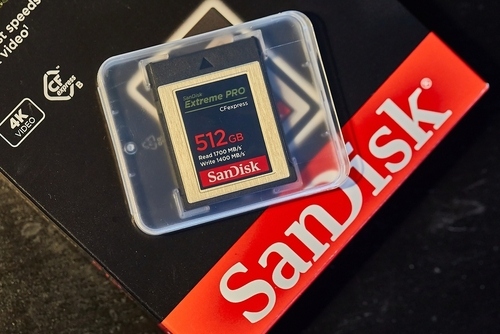Swift Transaction Volume Decline, XRP Surge: XRP Tundra Capitalizes on Momentum

A structural shift in global payments is becoming visible in the data. In 2025, the SWIFT network recorded a 15% month-over-month decline in total transaction volume, one of the sharpest drops in its recent history. Analysts link the fall to the growing appeal of faster, cheaper settlement layers such as the XRP Ledger (XRPL) and other blockchain-based payment systems.
While SWIFT remains a backbone for international transfers, its settlement model — often taking up to three business days and incurring multiple intermediary fees — appears increasingly out of sync with market expectations. The contrast has turned attention toward ecosystems capable of real-time settlement and measurable efficiency. Among them, XRP Tundra exemplifies how blockchain-native models are extending this shift into decentralized finance.
SWIFT’s Decline Signals a Larger Transition
The decline in SWIFT volume is not simply a temporary contraction. It reflects the growing pressure facing legacy networks as businesses seek predictable and immediate settlement. Institutions are reassessing cost structures that depend on intermediary banks, which add latency and friction to cross-border payments.

At the same time, global economic uncertainty and geopolitical realignments have intensified this transition. Rising compliance costs and fluctuating exchange rates have driven financial operators toward digital systems that minimize intermediaries and provide transparent verification. Blockchain platforms like RippleNet, Visa B2B Connect, and the Interledger Protocol (ILP) have demonstrated that global settlement can occur within seconds, not days — and at a fraction of the cost.
The trend is consistent with other indicators: as SWIFT activity declined through mid-2025, the XRP Ledger saw a measurable surge in daily transaction count and aggregate transfer value, confirming a direct shift in settlement behavior rather than a temporary trading anomaly.
Ripple’s Momentum Redefines Settlement
Ripple’s steady alignment with ISO 20022 messaging standards and the integration of ILP continue to position XRP as a functional bridge between fiat and digital value. Financial institutions experimenting with on-ledger settlements now use XRP not just for speed, but for compliance-ready transparency within existing frameworks.
The transition marks an important psychological shift for the payments industry. Efficiency has replaced familiarity as the core metric of reliability. As Ripple’s network adoption expands, systems built on the same ledger technology — including XRP Tundra — inherit both the technical foundation and the credibility associated with proven transaction performance.
This is where the next phase of growth occurs: not within isolated tokens but in ecosystems that merge institutional-grade infrastructure with open DeFi functionality.
XRP Tundra Extends That Efficiency Into DeFi
Built on XRPL for governance and Solana for execution, XRP Tundra operates as a dual-chain DeFi ecosystem designed to make yield and liquidity programmable under fully verifiable logic. The TUNDRA-S token on Solana manages reward distribution and staking, while TUNDRA-X on the XRP Ledger anchors governance and reserves.

The project’s Phase 9 presale lists TUNDRA-S at $0.147 with an 11% token bonus, while TUNDRA-X references $0.0735. Listing prices — $2.50 for TUNDRA-S and $1.25 for TUNDRA-X — define a combined 27× upside from today’s parameters. More than $2 million has already been raised, reflecting measured, audit-driven participation rather than speculative hype.
A recent HotCuppaCrypto review examined how Solana’s transaction capacity supports XRP Tundra’s structure. The analysis explained that Solana manages high-speed execution while the XRP Ledger maintains settlement integrity, allowing both networks to function together without overlap. It described Tundra as an example of how instant settlement principles can extend naturally into decentralized finance.
Verified Infrastructure and Transparent Design
In contrast to the opacity common in emerging crypto projects, XRP Tundra’s framework is publicly verified and permanently auditable. Independent smart contract reviews from Cyberscope, Solidproof, and FreshCoinsconfirm that the system’s vault logic functions as intended. A full KYC certification by Vital Block verifies the developer team’s identities — an assurance level uncommon among presales.
This transparency is central to Tundra’s value proposition. Every participant can trace audit results, presale parameters, and contract behavior before committing capital. As institutions migrate from opaque settlement processes toward traceable blockchain rails, projects maintaining these standards will define the next generation of interoperable finance.
A Turning Point for Real-Time Finance
SWIFT’s decline shows a clear market adjustment toward faster and more accountable systems. XRP’s rise in ledger activity reflects the same preference for efficiency that now defines institutional settlement. XRP Tundra’s architecture builds directly on that transition, offering a DeFi framework designed for verifiable performance across two of the industry’s most resilient networks.

SWIFT’s slowdown marks a turning point — XRP Tundra operates where that transition already exists.
Buy Tundra Now: official XRP Tundra website
How To Buy Tundra: step-by-step guide
Security and Trust: Cyberscope audit
Join the Community: X (Twitter)







